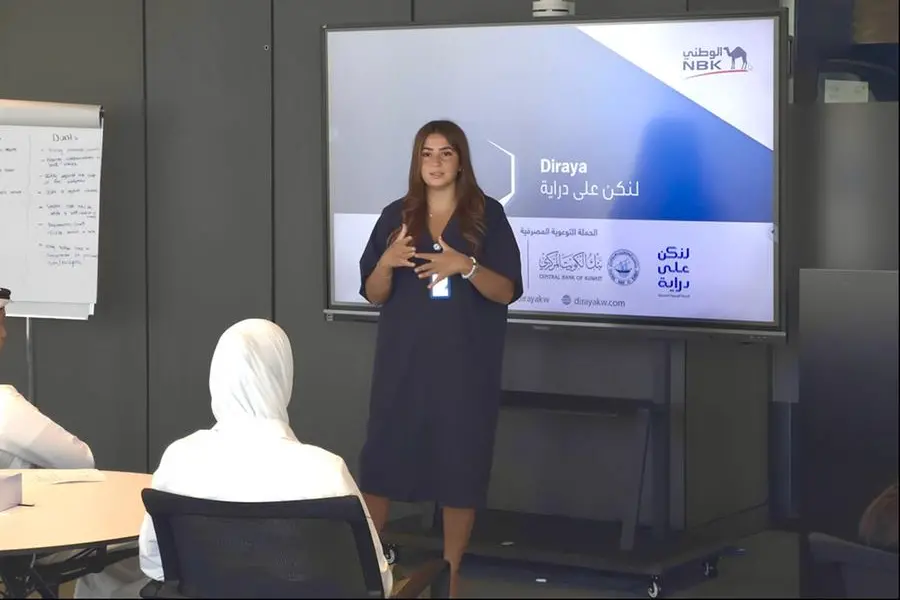PHOTO
NBK strives to increase customer awareness about fraud schemes and protection measures
Using strong and different passwords helps protect accounts from unauthorized access
As part of its ongoing efforts to promote financial and banking awareness among all sectors of society, National Bank of Kuwait (NBK) continues its active participation in the ‘Let’s Be Aware’ banking awareness campaign launched by the Central Bank of Kuwait, in collaboration with local banks and Kuwait Banking Association (KBA).
In this context, the bank organized an awareness session for the students of the ‘NBK Aspire’ Summer Internship Program for 2024, in which they gave a detailed presentation about the “Let’s Be Aware” campaign, and the channels used by the bank to increase awareness about fraud and protection methods. They also presented some practical cases and presented advice and guidance that should be followed to avoid falling victim to these threats.
The bank called to enable two-factor authentication (2FA), which adds an extra layer of security for online banking and financial accounts, as well as to keep a close eye on bank statements and transaction history, to identify any suspicious or unauthorized activity.
NBK advised the trainees to be cautious of e-mails, text messages, or phone calls that ask for personal or financial information, as scammers typically send phishing e-mails from illegitimate websites using the logo of well-known organizations such as banks, telecom or big companies, so that the user cannot distinguish between real and fake messages.
The bank also affirmed that it will never ask customers for personal information via e-mail, SMS or phone calls, warning them of responding to such messages representing fraud attempts to steal customers’ banking information.
Among the key tips shared with ‘NBK Aspire’ interns was using strong passwords to protect different personal accounts online, creating different passwords and not using the same password for all accounts, and updating them regularly.
Additionally, the bank urged them to use long passwords that contain at least 8 characters with a mix of letters, numbers, and symbols, as the longer the password, the more difficult it is to hack. It also warned against using personal information in passwords, such as birth date, family names, and simple number sequences, to ensure protecting the security of your important information.
With the ever-growing fraud threats using various techniques, NBK is keen to protect customers and increase their awareness of how to steer clear of these threats. To this end, the bank advised to ensure computer, smartphone, and other devices used for banking are protected with up-to-date antivirus software and security patches, as well as to set up transaction alerts with the bank so that customers receive notifications for any withdrawals, transfers, or changes to your account.
The bank also explained to the students that financial knowledge and staying informed about the latest scams and fraud techniques are key to recognizing and avoiding potential threats, calling trainees in case of suspecting any fraudulent activity on their accounts, they should immediately contact the bank to report it and take necessary actions to secure the account.
NBK employs its strong customer communication capabilities as well as all its digital channels, which are the most popular among all Kuwaiti banks, to support the Central Bank’s endeavors to protect customers and the national economy.
It is worth mentioning that NBK is a key supporter and partner in all CBK’s campaigns and initiatives to increase financial and banking awareness among different sectors of society. As a leading financial institution in Kuwait and across the region, NBK frequently organizes various activities to raise awareness on all topics related to the banking sector.
The ‘NBK Aspire’ aims to encourage students to engage in the banking business experience during their summer vacation, reflecting the bank’s steadfast commitment with corporate social responsibility by empowering and upskilling the young generation to play an active role in the future.



















